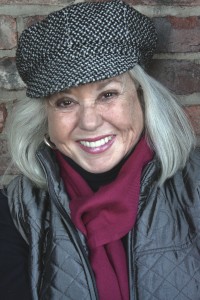In our second Pursuit podcast, we launch a series of sonic PI profiles—glimpses into the lives of real private investigators, in their own words.
Meet Norma Tillman, accidental PI and people finder extraordinaire. She’s president of TALPI, author of a stack of how-to books for PIs, and frequent speaker at conferences…and even on Oprah.
We begin with the story of a long-lost son, and a case that just didn’t sound right to Tillman. Turns out, her instincts were right on.
But when it comes to right and wrong, it’s not just about instincts and intuition, says Tillman. It’s about saying no sometimes when it’s easier to say yes, and telling the truth when it’s easier to lie. “There are private eyes who will do anything to get what they need,” she says. “I always say, if you have to lie, cheat, or steal, you’re not a good investigator.”
Click above to hear the podcast, or scroll down to read a brief excerpt:
The Right Way and the Wrong Way
 There are bad apples in every profession. There are private eyes who will do anything to get what they need. I always say, if you have to lie, cheat, or steal, you’re not a good investigator. There’s the right way to do it, and there’s the wrong way. You don’t take something off that fruit of the forbidden tree because it taints your case, and it’ll ruin you.
There are bad apples in every profession. There are private eyes who will do anything to get what they need. I always say, if you have to lie, cheat, or steal, you’re not a good investigator. There’s the right way to do it, and there’s the wrong way. You don’t take something off that fruit of the forbidden tree because it taints your case, and it’ll ruin you.
I always say, “This is Norma Tillman. I’m a private investigator, and here’s what I need.” I don’t have to lie to get what I’m going after. I get it by telling the truth.
Recently, I sent one of my private eyes out on a surveillance, and the person came out and shot his car up. Well later on, I heard the other side of the story. He was on private property when the person shot at him. He was trespassing. So you just have to know the law and know when not to cross that line. There’s some that don’t know the difference, but there’s some that wouldn’t cross it for anything.
Investigating While Female
When I worked in law enforcement, there was a lot of prejudice against women. I went through the police academy back in 1978, one of five women. And the first day I was pulled aside and said, “Lady, I don’t know who let you in here, but we don’t like you, and I hope you don’t come back tomorrow.”
And that was the nicest they ever treated me, so I was determined they weren’t going to run me off or discourage me. And so every time they mistreated me, I would think, “Thank you. You’ve made me a stronger person.”
Because I’m a woman, does that hurt me in any way? If anything, being a private investigator, it makes me more non-threatening. I think my Southern accent and my mannerism and my ability to kind of understand what that person is thinking helps me a whole lot. Forget that I’m only five foot two and I don’t weigh 200 pounds. I’ve got a brain and I can find things in the computer you can’t find.
Finding a Life’s Work
What I enjoyed most with the police department was tracking down a criminal that no one else could find. I would say, “Tell me what you’ve done.” I would evaluate what they’ve done and find what they failed to do. And that’s what I would do, and I would find them every time.
But when I left the police department, attorneys called me and said, “Would you find a missing heir or a missing witness?” And I had to become a licensed private eye in order to work for the attorneys. So I never set out to be a private eye. It just happened.
[quote align=”center” color=”#999999″]I never set out to be a private eye. It just happened.[/quote]
Tracking down criminals was not easy. They don’t leave a good trail. When I became a private eye and started working for attorneys, they wanted me to find people who had left a trail. They’re not deliberately hiding, and they do leave a good trail. I thought, “This is the easiest thing in the world!” And I love it.
I won’t give up. I’m pretty tenacious. I will go after that person until I find them. I won’t take anybody’s money unless I find them. People have asked, “Am I psychic?” And I say, “No, I’m psycho.”
Finding a ten most wanted is one thing. And I worked on a case one time, I thought, “I’ll never work on anything more exciting or more thrilling than this one case.” But then when I started reuniting families, Oh! It was so awesome. And it’s like, I found my niche, it found me. This is what I love to do.
Produced by Storyboard EMP
Host: Hal Humphreys
Music provided by Jason White (who composed our theme) and Lullatone.
Special thanks to Norma Tillman, radio producer Kim Green, and engineer Simon Gugala.


